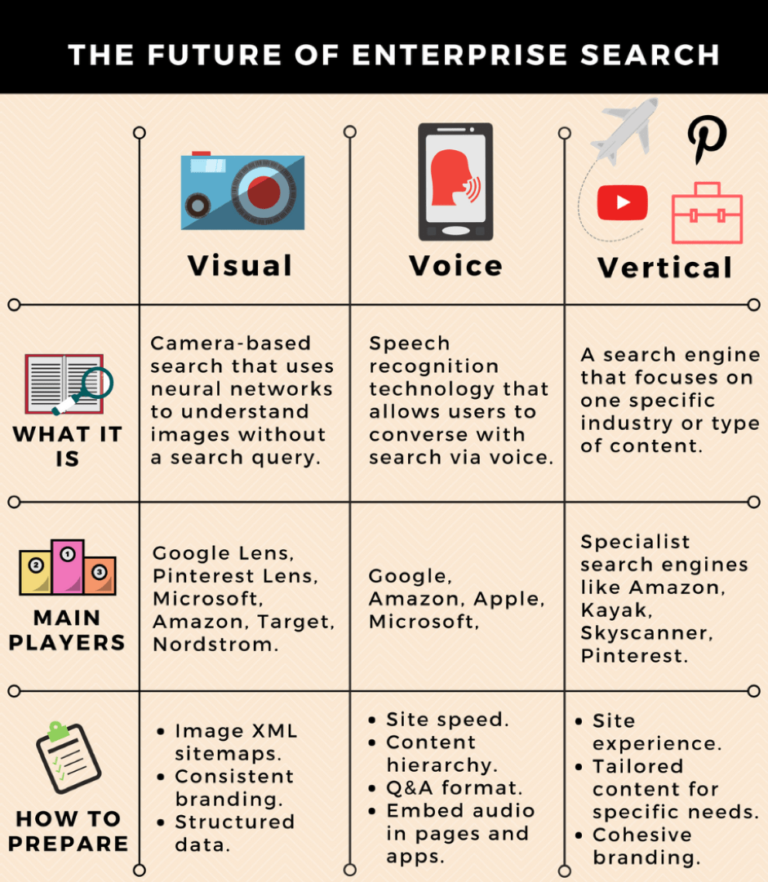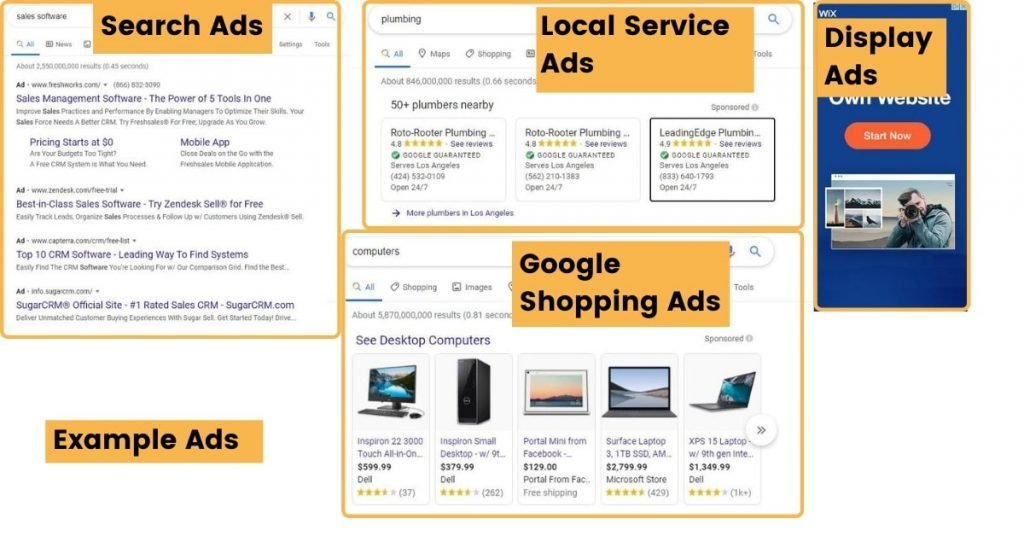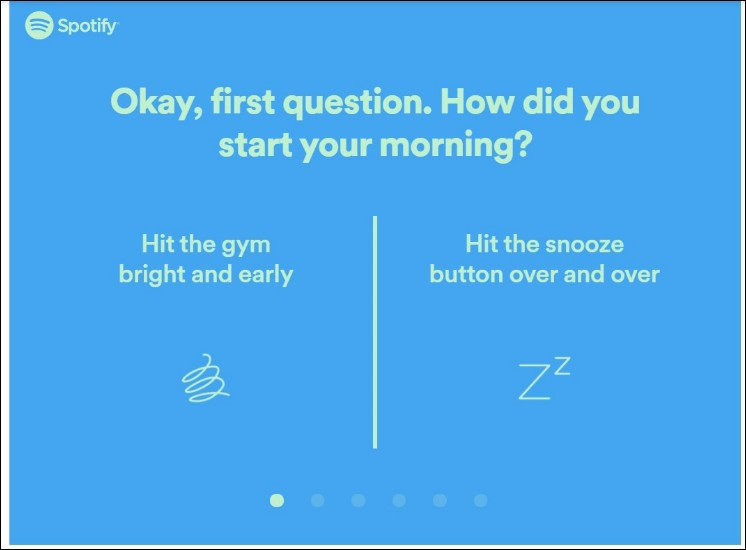
The content creation landscape has undergone significant changes of late. Machine learning and AI are the new buzzwords, and the introduction of products like Google Home and Amazon’s Alexa are changing the market for the upcoming decade. Google’s algorithm is ever-evolving, and it has had a major impact on how content ranks, and the way people now present and consume content.
SEO, in particular, has become an indispensable feature of web content writing. For the uninitiated, it is a set of practices that help rank your website on search engine results pages (SERP). When creating content, you need to be apprised of the several ranking factors on the basis of which you can occupy the top spot on SERPs and attract organic traffic.
How to Make Your Content Rank: 8 Trends to Look Out For
In this blog, we will walk you through the techniques required to make your content rank this year.
1. Voice and visual search
As voice technology has improved over the last decade, voice searches are now becoming the new trend in SEO. According to a Global Web Index report, about 27% of search queries are sent to Google by voice, and this number is expected to rise with time.

Visual searches (using visuals to send in search queries), while already prevalent in the last decade, have substantially improved, and are expected to be a major change too. Google Lens is reported to detect over a billion objects, proving this trend will be a driving factor of SEO in the coming years.
2. Quality content that provides instant solutions
With so much content available online, people no longer want to be lost in a sea of information. In early 2010, when we were just getting started with creating content, browsing for information involved clicking on multiple websites. In the beginning of 2020, we already know how to differentiate between low- and high-quality content.
People want instant answers to their queries without having to waste time on information that is not necessary. It is more about quality content that can hold their attention. Google has started addressing this need for consumers with its own results. It’s no longer about word count—quality content involves an appropriate use of keywords, quality backlinks, accurate internal linking, and material that actually helps people (quickly).
3. Predominance of Google Ads
A study by ahrefs reveals that most search queries (over a whopping 90%) made on Google don’t drive traffic to the websites at all, even ones that rank among the top few on SERPs. This significant change has been a recent but gradual one. The space on any search result page is now being increasingly occupied by ad results. According to research by Hanapin Marketing, 96% of marketers invest in paid ads.

Google Ads is a Google platform that lets brands place bids and secure their spot on SERPs to advertise their offerings. It helps you drive quality traffic and make your ads more targeted, all while adhering to your specific budget. As a result, ads today have not only improved, but they have also started providing rich content that can drive traffic to websites and fetch the advisers their money’s worth.
4. The importance of featured snippets
Meta tags are one of the important driving sources of traffic for content today. Searches on Google yield results with little snippets of information underneath them. This information is short, concise, and usually a direct answer to most search queries, especially ones that require minimum comparisons or detailed answers.

In essence, your meta title and meta description should accurately summarize all the information contained in the web page, as they’re the first thing the user sees after they submit their search query. Google Ads, too, provides informative snippets that make users click to read on further, based on the quality of content provided in the snippet. In a nutshell, meta tags are an important determinant of how your content ranks, and whether it will receive the desired traffic.
5. Automation of SEO
Earlier, the click-per-rate and keyword traffic trends used to be analyzed manually. Content creators checked their analytics pages to see which ones worked better than the others, and what worked better for their pages. The content and keywords were then tweaked and improvised on to improve search rankings.
With improvements in the field of analytics and increasing automation in every sphere, companies are introducing software that can improvise content based on keyword rankings automatically. SEO brings down the time spent in completing tasks, along with reducing manual efforts. It helps with many activities, such as tracking your site rank, monitoring competitors’ sites, checking backlinks, and more. There are a plethora of tools online that can help you automate your SEO efforts. Below, we mention some of the main ones:
- SEMrush for keyword research, domain analysis, and backlink checking
- ahrefs, for monitoring backlinks, and checking brand mentions and page ranking
- Google Search Console, for measuring site traffic and optimize site performance
- Moz, for checking site visibility, enhancing link building, keyword research, and domain analysis
6. Diversification of content
In the past decade, we mostly saw written content. Internet speeds were slower and images had to be used with limitation to ensure that website speed was not slowed down. While speed influences how your content ranks even now, content has seen a lot of diversification today. Video, images, and other rich media dominate the website space, and are considered more informative, along with shorter, concise, and point-wise information.
7. More focus on interactive content
Interactive content is any type of content that engages and retains users. It helps enrich the overall user experience as well. In short, it turns passive audiences into active ones, by enabling them to engage in a bidirectional conversation. It not only helps keep users on your website for longer periods, but it also helps increase conversion rates. Creating brand awareness is another function of interactive content.

Some examples of interactive content include quizzes, interactive maps, cinemagraphs, infographics, GIFs, surveys, and more. Interactive elements can be applied to everything from website content to emails.
8. Enhanced user experience
As the name suggests, user experience refers to a web surfer’s experience when they are interacting with your website. You would want to make this experience as pleasant as possible for them. Search engines rank content that provides users with value and a good surfing experience.
Your website’s user experience involves several elements, such as site speed, interface, high-quality content, graphics, mobile-responsiveness, and more. You need to ensure your website is easy to use, and fulfills the needs of the surfer.
Advancements in technology will continue to bring disruptions to digital marketing. Your content needs to be more than just informative. It needs to hook the reader from the get-go. You should also make it a point to adhere to Google’s ranking guidelines, as that determines how your content ranks on the search engine. Evolving with the changing trends and adopting best practices is the only way to keep up in this competitive online sphere.
FAQs
Page speed, valuable content, quality backlinks, user experience, keyword incorporation in the URL, and site architecture are some of the many ranking factors Google has.
Google prioritizes web pages that are user-friendly, i.e., pages that users have little to no difficulty surfing. Therefore, user experience forms an important part of SEO.
Google Search Console is a tool used for measuring site traffic and optimizing the overall site performance. It is an important part of an SEO specialist’s toolkit.
Latest Blogs
Explore how Google’s 2025 AI search updates triggered ranking chaos. Learn actionable strategies to adapt your SEO for AI Overviews, zero-click searches, and SERP volatility. Stay ahead now.
Learn how to rank on AI search engines like ChatGPT, Perplexity, and Gemini by optimizing your content for authority, structure, and relevance. Stay ahead in AI-driven search with this strategic guide.
Explore the best healthcare SEO services for your medical practice. Improve online visibility and effectively reach more patients in need of your services.
Get your hands on the latest news!
Similar Posts

Content Marketing
4 mins read
11 Best B2B Content Marketing Agencies for B2B Companies in 2024

Content Marketing
5 mins read
Top ecommerce Marketing Agencies with Proven Strategies for 2024

Content Marketing
5 mins read